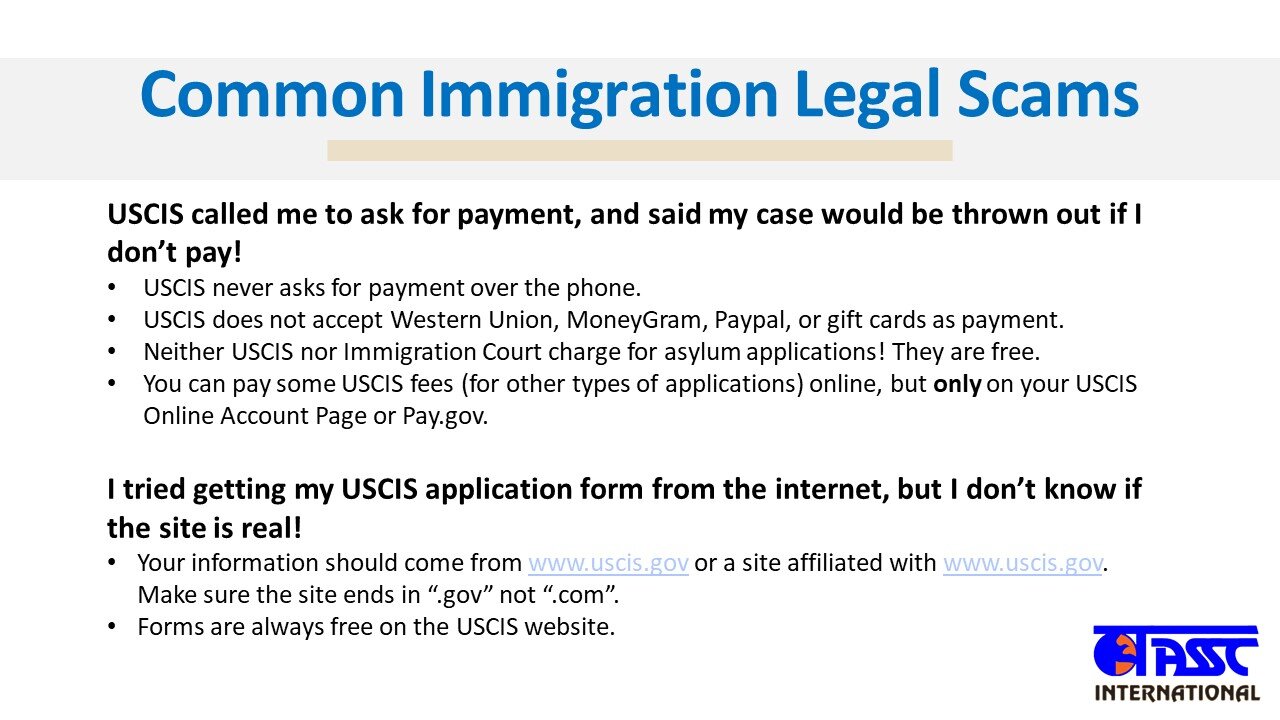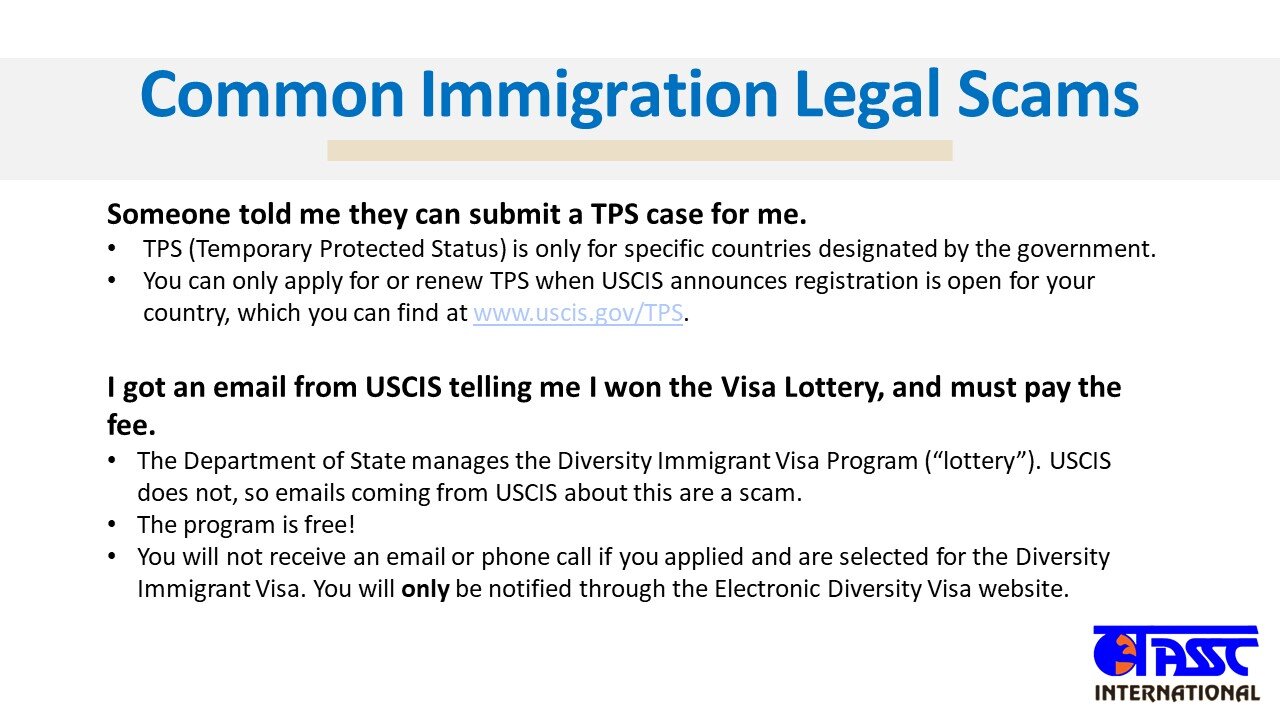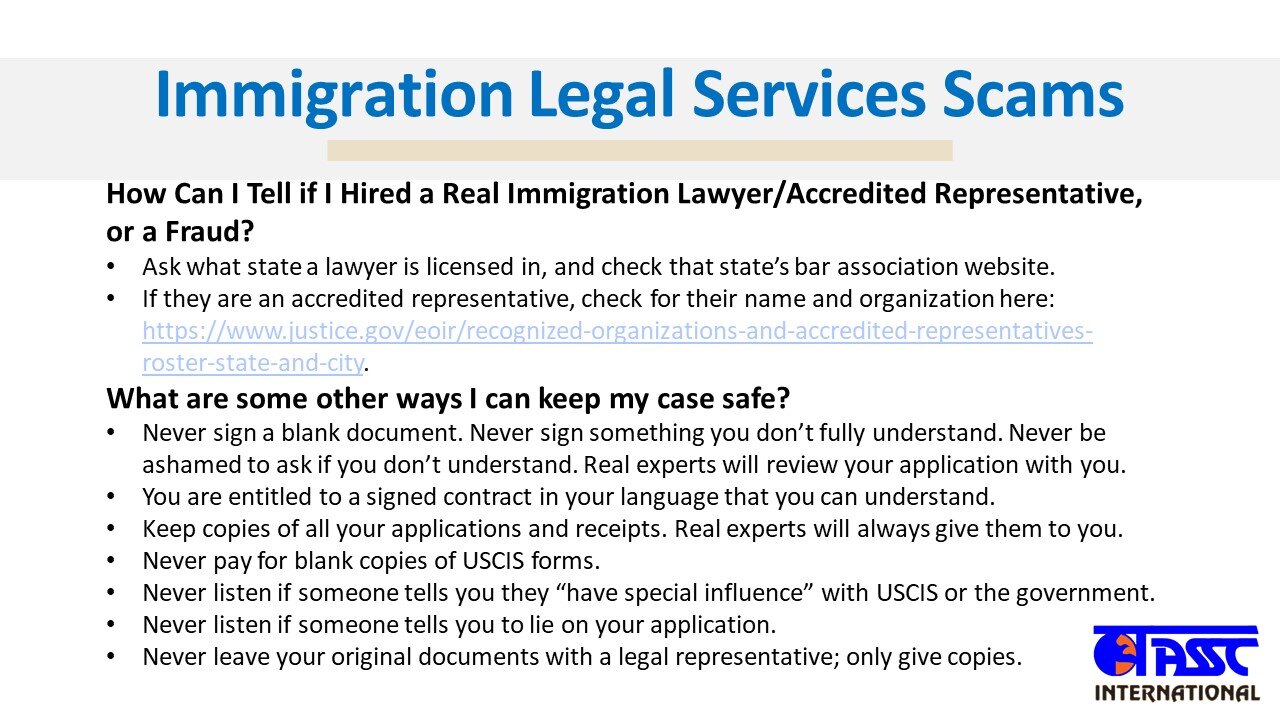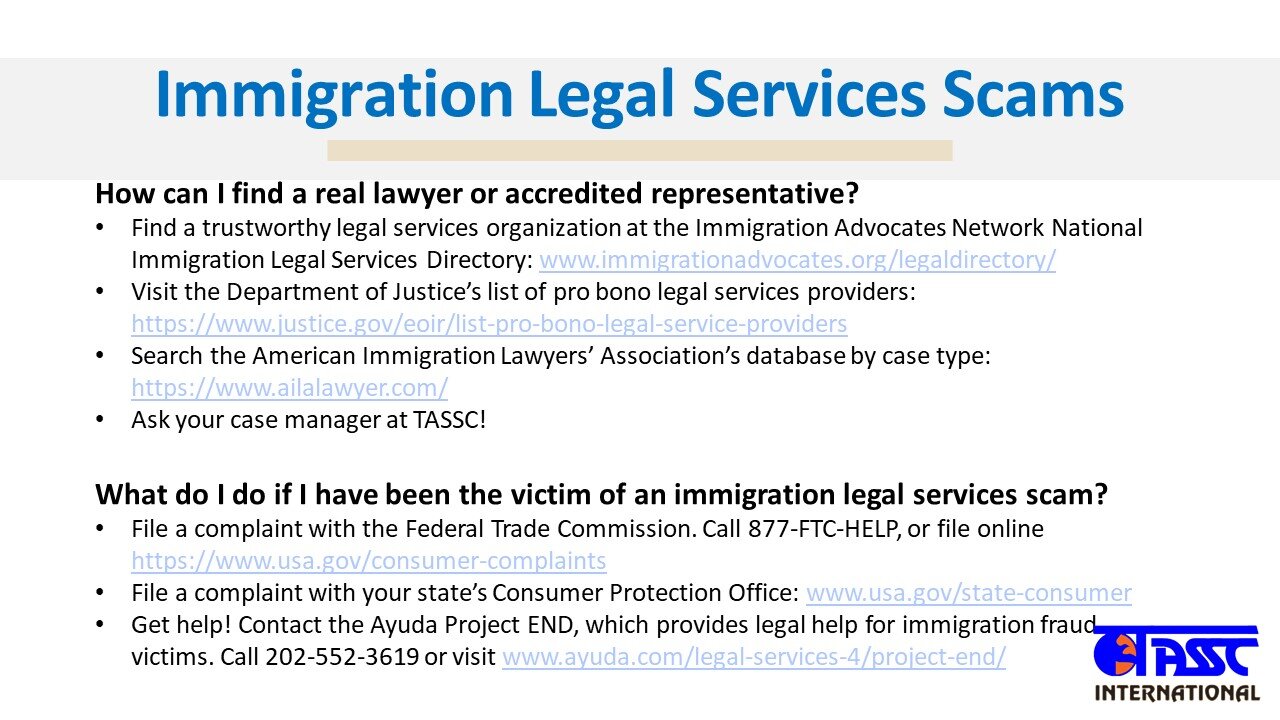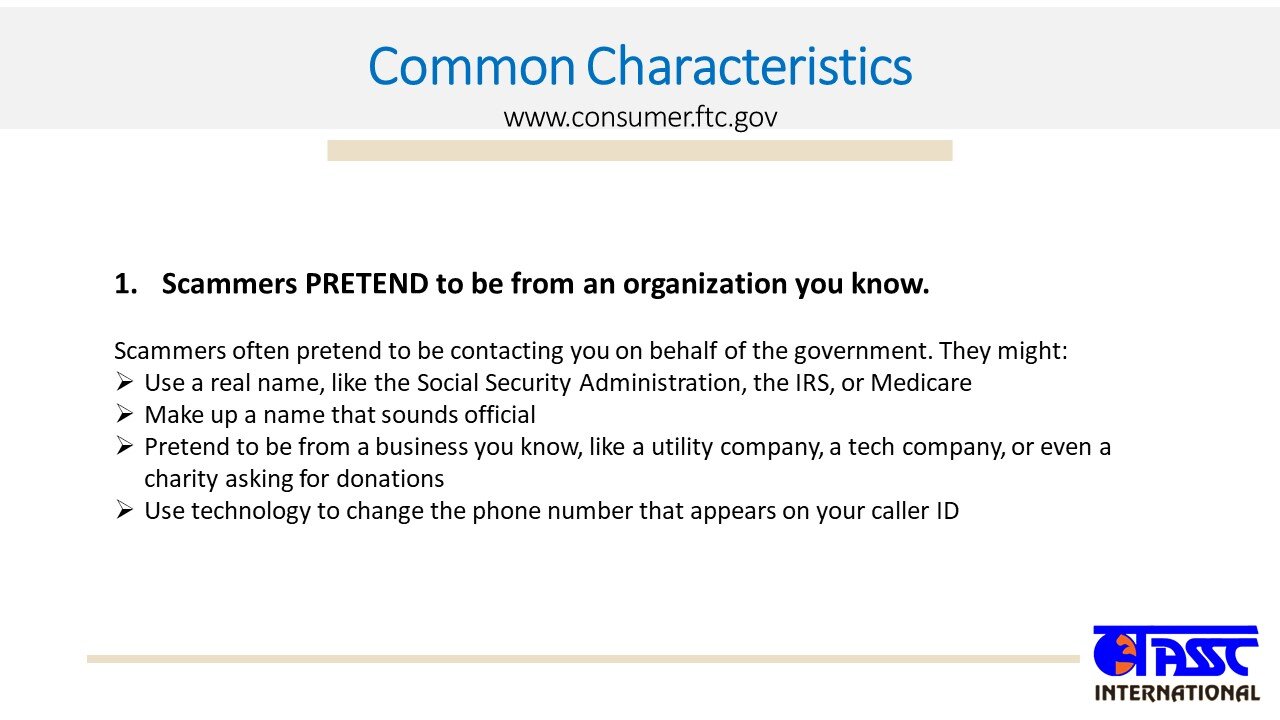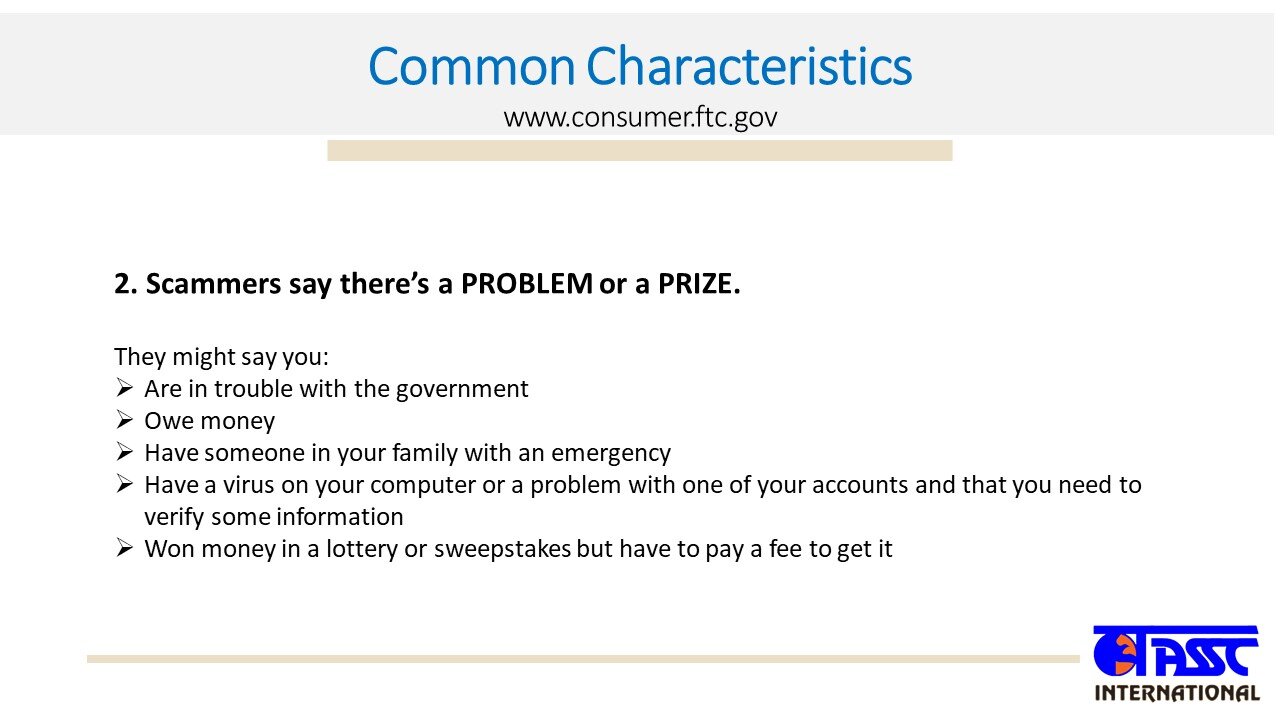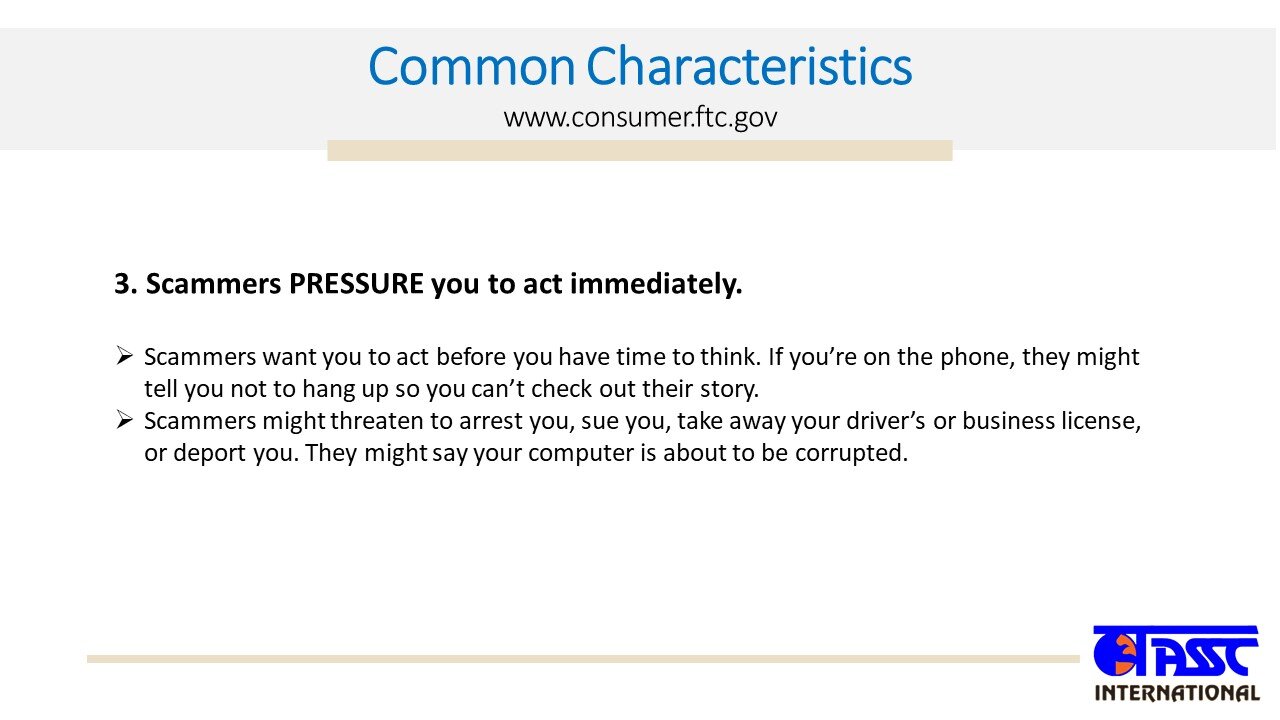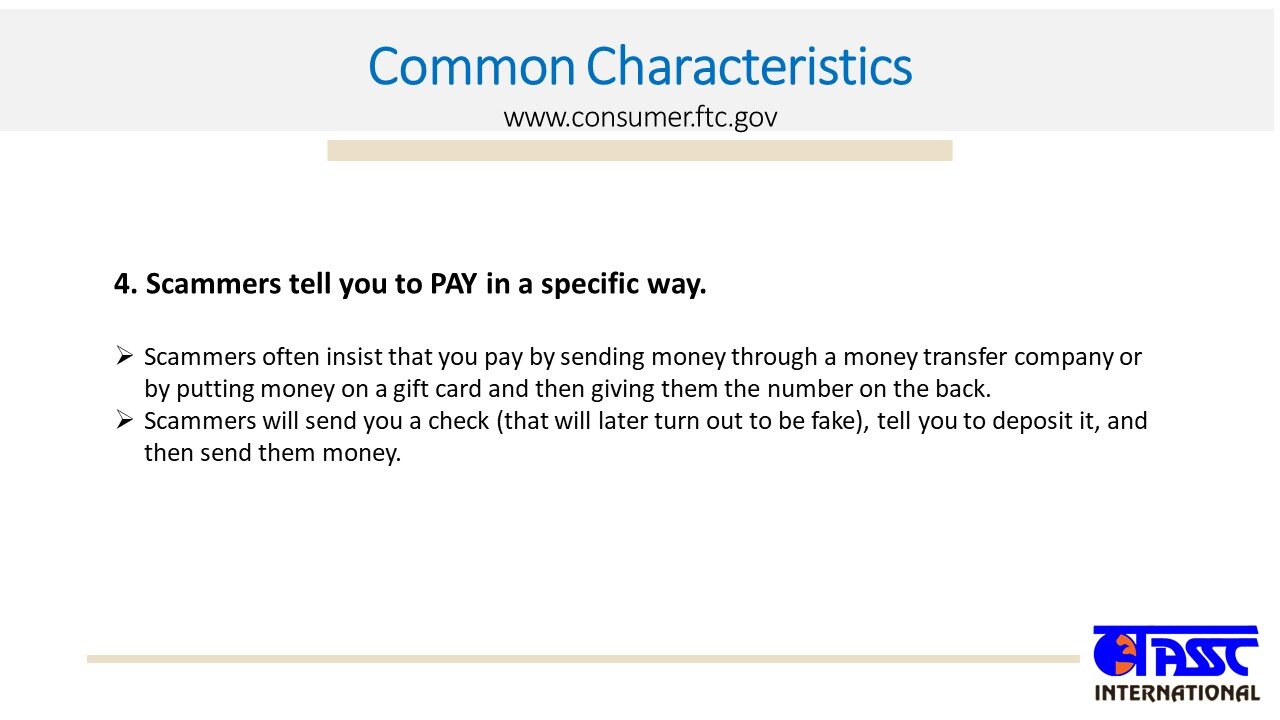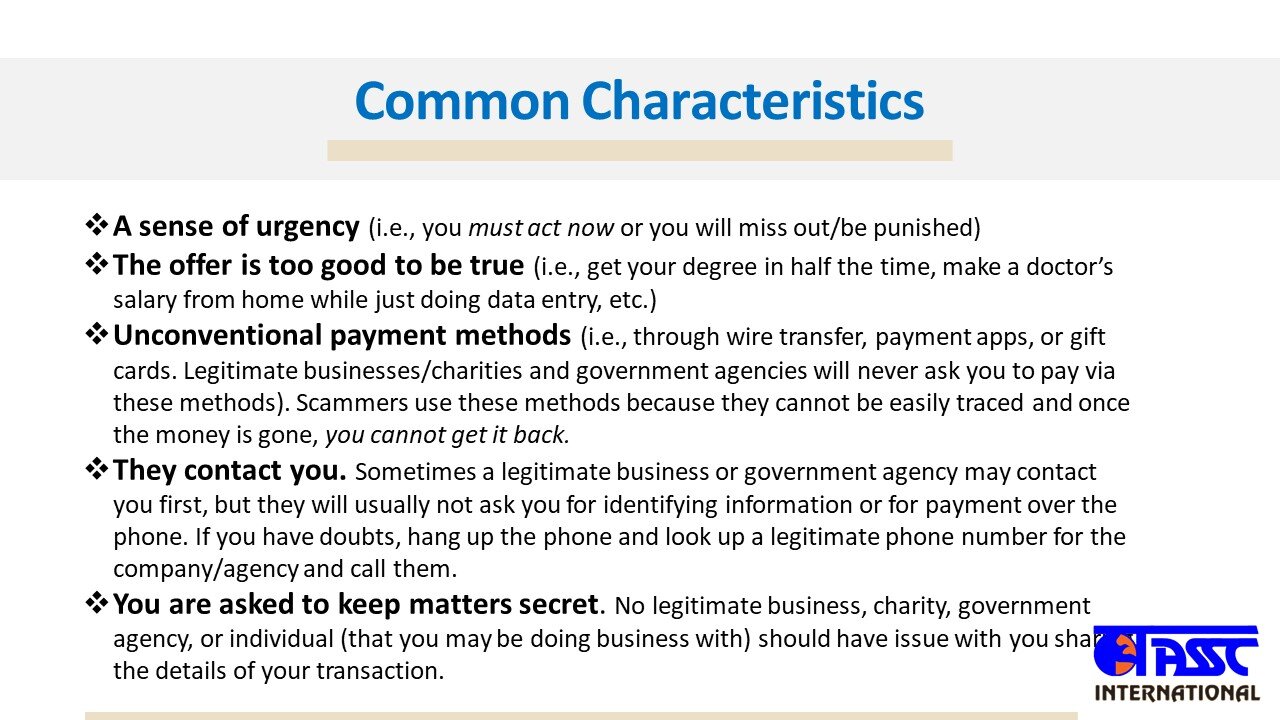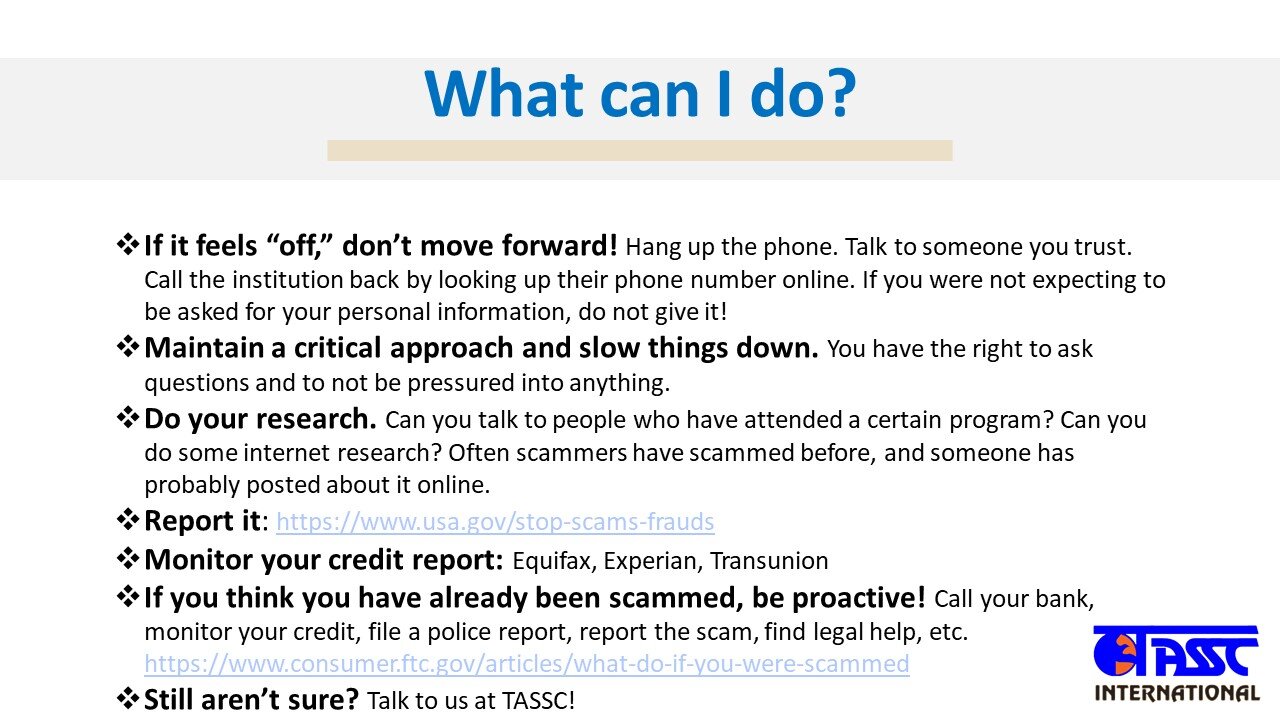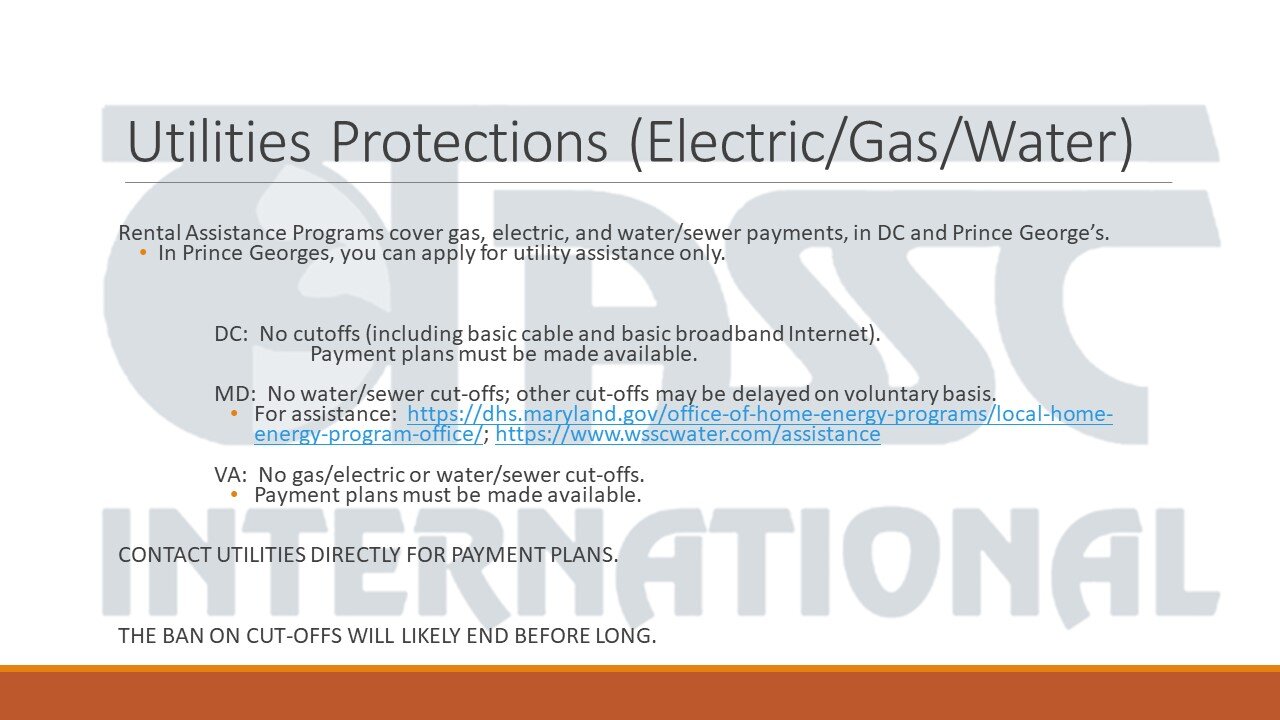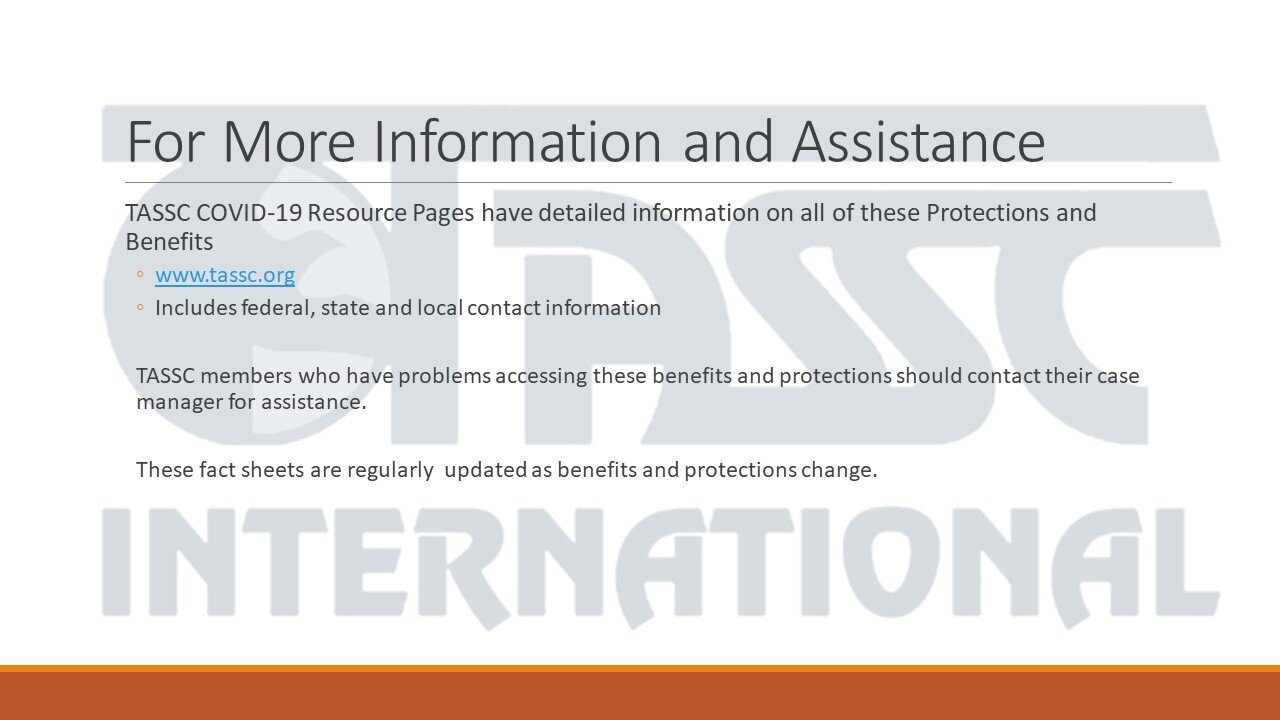Resources
TASSC provides a variety of workshops and orientations where survivors may explore topics related to life skills, asylum history, self care, and so much more. We believe our materials should be accessible to all, including those unable to attend the sessions in person.
As we further develop our training capacity and resources, we hope these presentations serve as a starting point for those interested in the information disseminated by our uniquely experienced staff during in-house sessions.
Please note that nothing presented herein, whether embedded or available for download, is to be construed as clinical or legal advise. These resources are general in nature and are for informational purposes only. No clinician-client relationship nor attorney-client relationship is created by the use of this website. Thank you.
TASSC Legal Team Mock Interview
& Asylum Updates as of March 2020
Watch the TASSC Legal Teams Asylum Update and Mock Interview!
The video begins with tips on how to best prepare for an interview as well as updates about significant policy changes affecting asylum application and process.
The Mock Interview begins at approximate 29 minutes into the video and is followed by an incredibly detailed question and answer session at approximately 1 hour and 23 minutes.
























































HUMAN RIGHTS ABUSE SANCTIONS: COMPARISON OF OPTIONS
U.S. and international law provide three key legal options to penalize individuals who have committed serious human rights abuses and, in the case of two of those options, to provide for a financial remedy for some survivors of those abuses. The three options are: the Global Magnitsky Act1, the Torture Victims Protection Act of 1991 (TVPA) 2, and the International Criminal Court (ICC)3. The following summarizes the protections provided by the three options, and compares the essential requirements and limitations of each.
PURPOSE
Global Magnitsky Act: Authorizes the US government to block or revoke the visas and freeze all US property interests of persons who have engaged in serious human rights abuses or corruption
TVPA: Provides individuals who experienced torture or extrajudicial killing under the authority of a foreign nation the right to file a US civil law suit for damages
ICC: Establishes an international court to investigate and prosecute genocide, crimes against humanity and war crimes
WHO CAN INITIATE A CASE
Global Magnitsky Act: Non-governmental organizations that monitor human rights; certain Congressional committee leaders, Assistant Secretaries of State, foreign governments.
TVPA: An individual who was tortured, or the heirs or estate of an individual who experienced an extrajudicial killing:
· Can be a US citizen or non-citizen.
· Cannot be a corporation or other organization
ICC: The UN Security Council, the ICC Prosecutor, or one of the 128 countries that are parties to the ICC (the U.S. is not a party to the ICC).
WHO CAN BE SANCTIONED
Global Magnitsky Act: A foreign person responsible for or complicit in a serious human rights abuse or who engages in corruption; an official of a government or other entity engaged in such abuses, and persons who materially support such acts.
TVPA: A person who subjected an individual to torture or extrajudicial killing:
· Under the authority or color of law of a foreign nation ordered, abetted, assisted, authorized, tolerated or knowingly ignored the torture or extrajudicial killing.
· Must be a human being, and not a government, corporation, or other organization.
· Must have sufficient contacts with the US to be subject to the jurisdiction of the US federal courts.
ICC: A natural person who was responsible for an atrocity crime:
· From a nation that is a party to the ICC, unless the case was referred by the UN Security Council or the non-party state consents.
· Not a government, corporation, or other organization
EVIDENCE REQUIRED TO PREVAIL (see Appendix 1 for detailed information on what must be proved)
Global Magnitsky Act: Credible information that provides “reason to believe” and is corroborated by multiple sources that the offender: 1) committed serious human rights abuses, including torture, enforced disappearance or extrajudicial killing; or 2) engaged in corruption.
TVPA: Facts demonstrating that, more likely than not (“preponderance of the evidence”), the offender committed torture or an extrajudicial killing.
ICC: Evidence that proves beyond a reasonable doubt that the offender committed an “atrocity crime”: 1) a crime against humanity; 2) a war crime; or 3) genocide
TIME LIMITS ON SANCTIONING
Global Magnitsky Act: Offense must be within five years of sanctioning
TVPA: Lawsuit must be initiated within 10 years of when the offense, with some exceptions
ICC: Offense must be committed after July 1, 2002.
OTHER RESTRICTIONS ON BRINGING A CASE
TPVA: Plaintiff must show that they pursued any available recourse within the foreign nation, or that doing so would be futile or create a risk of reprisal.
ICC: Will not take a case that has been investigated and prosecuted in another court, or that another court is “genuinely able and willing to pursue the case.
PROCESS
Global Magnitsky Act: After fact-finding by the Departments of State and Treasury, the President may designate an offender, revoke their visa, and freeze their US-based property interests, subject to review in the US courts.
TPVA: Cases are filed as civil suits in US federal district court, generally subject to the procedural requirements of USC Title 28 and the Federal Rules of Civil Procedure
ICC: After investigation by the ICC prosecutor, suspects are arrested and tried, subject to full due process requirements, trial procedure and evidentiary rules as mandated by the Rome Statute.
AVAILABLE REMEDIES
Global Magnitsky Act: Offender’s visa is revoked and US assets frozen; no compensation to survivors of human rights abuses
TVPA: Plaintiff may be awarded compensatory and punitive damages out of offender’s assets in the U.S.
ICC: Offenders may be sentenced to up to life imprisonment, fines and forfeiture of assets; the court may order reparations to victims including compensation, restitution and rehabilitation, largely from the ICC’s Trust Fund for Victims.
JoAnn Goedert
August 25, 2020
Source:
1. FY 2017 National Defense Authorization Acts and Executive Order No. 13818 (2017). 2 28 U.S.C. §1350 3 Rome Statute of the International Criminal Court (1998).2. 28 U.S.C. §13503. Rome Statute of the International Criminal Court (1998).














